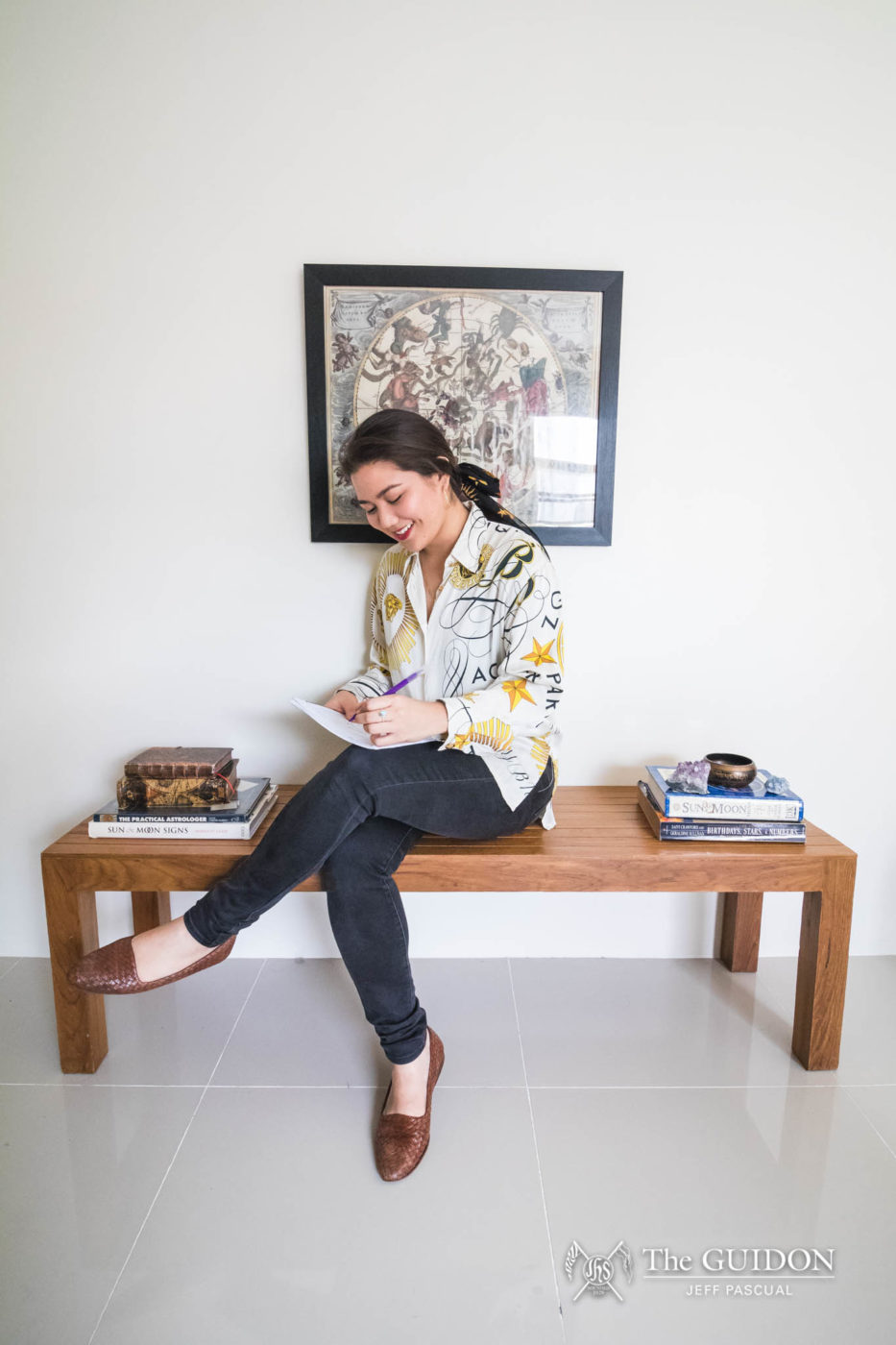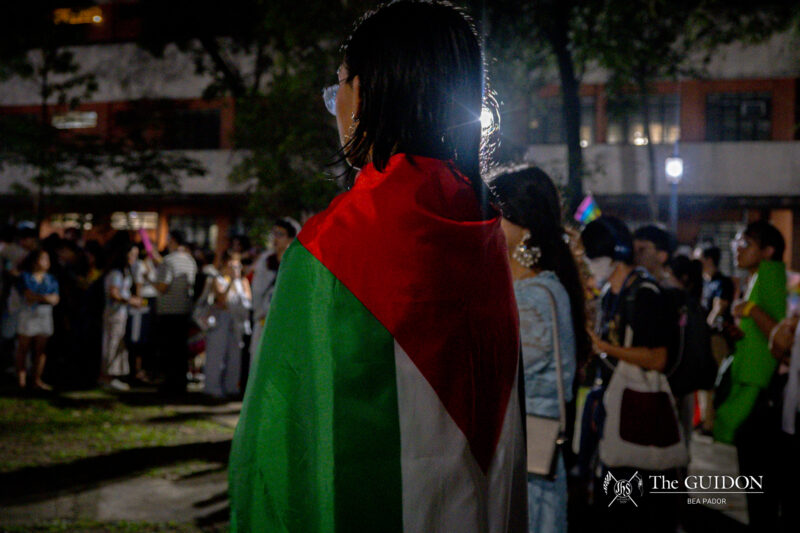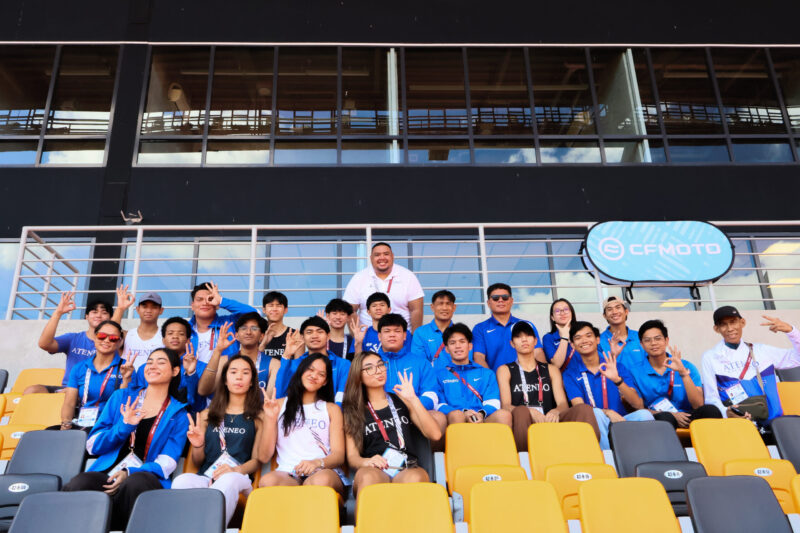Some 2,000 years ago, the Ancient Greeks took the 12 zodiac myths established by the Babylonians and created a system of constellations. Astrology, which is based on these constellations, carries a millennia worth of rocky history, rising in and out of public favor. Now, in the 21st century, it finds itself in the unique position of captivating the minds of a generation raised on evidence-based science.
For psychology senior Monica Gamboa, the name behind “Monch the Mystic,” astrology is something that can help ourselves understand the world. More than that, she advocates for a bigger perspective on life despite the taboo surrounding an unconventional belief.
Grounding the heavens
The correlation between an individual and the heavenly bodies comes from the birth chart, which is generated using one’s birth details, especially, according to Monch, the time of birth. This is the main tool that she uses during her readings. More than just a display of zodiac signs, the birth chart manages to connect characteristics and effectively create a visual representation of personality.
Being a psychology major aids in her pursuit to use the heavenly bodies to unlock the deepest facets of personality. “I’m a [psychology] major, so we learn about looking for proof, [and] that’s what we [astrologers] are doing now,” she says.
Monch takes pride in being able to spread astrology to Filipinos through her astrology reading service. She acknowledges that astrology is taboo in society due to the doubt people naturally have when discussing it, but still finds purpose in being able to introduce it to the mainstream.
Using her degree in psychology, she aims to highlight the science and cohesion in her craft. “I’m trying to prove that [astrology is] a science. There’s math [in it], but at the same time you mix it with intuition,” says Monch.
Forming our own constellations
Monch is more of a healer than a fortune-teller. She sees astrology as a “healing art,” something that is not only magical, but also practical and useful to reach one’s dreams and goals in life.
“It’s really about knowing about yourself,” she says. “I don’t predict, but [rather] I give someone the space or the time [to do it themselves]. I want them to understand that I can understand them more than other people with [astrology].” True enough, this relates to Monch’s belief that some things, like love compatibility, is hard work and cannot be altered by chart reading.
Monch has also studied hypnosis for her elective, while also practicing yoga, meditation, and hypnotherapy. For her, astrology is a “constant study” as much as “an observation.” It is an observation of how generations of societies have put meaning into symbols of stars and what it represents for them, and how their beliefs have truly helped those who looked up to it.
Monch and her practice aims to be an example of how the country can look forward to astrology as a means to reach “self awareness and self- actualization,” which is beneficial for individuals who find difficulty in surviving aspects that is important in one’s life.
She says that “the goal is to make [astrology] a part of Filipino culture, like how we can use it to help us, especially in our political climate.” Specifically, in a time where there is political chaos in the country, the ability to keep one’s composure and calm to brave through battles remains powerful for Monch, and astrology is a helpful medium in achieving that.
One of Monch’s most loyal clients is a testimony to her humble work. Catherina Dario (BFA CW 2016), a yoga teacher, swears by Monch’s services. “She helped me understand the complexities and nuances of astrology, and now I really appreciate it in its full spectrum. I used to think that astrology was sort of a black and white textbook kind of thing; she showed me that it’s very intimate and personal.”
The science of faith
The glory days of astrology as the definitive spiritual practice can be dated as far back as the first century. Recent translations of ancient texts has allowed for the rise in modern interest. Admittedly, this interest is kept subdued and marginalized by a prevalent dismissal of astrology as nothing more than feel-good fluff.
“For everything we don’t really know about, especially astrology, isn’t it better to keep an open mind?” Gamboa says. As a psychology major and Rappler’s resident astrologer, Gamboa finds herself in a unique position of balancing her mind for analytics and her heart for the stars. “I think a suspension of disbelief before actually having faith in it is important.”
It is this fantastical and intuitive element to Monch the Mystic that sets it aside from the myriad of Atenean start-ups. Gamboa runs her business not with a hefty bottom line as the goal, but as a company rooted primarily in the science of belief. “We all have our answers inside ourselves,” she explains. “[I just] guide you through what’s already in you.”
Down to earth
Unfortunately, albeit predictably, Gamboa has faced criticism for practicing a discipline that has historically held very little water scientifically. This backlash coupled with the stress of her graduation has forced her to set aside priorities. It seems, even in the face of translating the universe, a university degree comes first.
But Gamboa’s decision to pace herself is as carefully planned as her readings. “For now, it’s really just [the collection of] knowledge,” she says. “Because if someone attacks me, I want to be able to defend myself. I [will] say, ‘Give me your birth chart.’ I don’t have to prove anything. You have to experience it for yourself.”
Criticism against astrology is not new; the field has been consistently attacked since the Hellenistic period. In James R. Hein’s article, On Astrology and Modern Science, he describes science as the tool most often used to demolish the practice, with critics citing the study’s roots in ancient superstitions.
Contemporary astrologers are basing their disciplines in analytic psychology in an effort to incorporate the very thing that periodically discredits it: Science and rationale. This humanist approach aims to address the individuality of people rather than as groups or statistics. Gamboa, who states that a birth chart is all she needs to prove herself, clearly practices under this ideal.
Gamboa applies as much hard data and numbers to explain her findings in readings, using birth times to calculate rising signs and house positions. In sum, rather than reading the stars and planets themselves, Gamboa reads time. This shift of perspective questions all past arguments of astral forces being too great a distance away to influence the very beings of people.
A new viewpoint in an old field opens doors. Although Gamboa’s approach is certainly millennia away from that of Babylonian astrologers, astrology as a whole is yet to step out of the shadows of superstition and vague myth. But Monch the Mystic may yet still have time.







